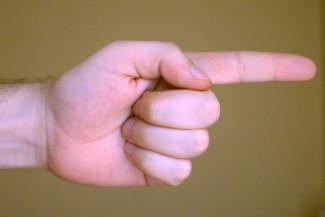You’re almost through writing your novel or nonfiction book, and now you’re thinking about getting some endorsements . . . those wonderful little plugs for the book that authors display on their book’s back cover. But what should an endorsement say, who is qualified to give it, and how do you get a qualified person to give you one?
Who to Approach
The first rule of an effective endorsement is that it has to be from someone qualified to give it. That means from someone considered an expert in your genre or in your field.
If you’re a fiction writer, you should look for endorsements from well-established novelists who already have built reputations for themselves. An endorsement from the boss at your day job, or from your college writing teacher, isn’t going to cut it. In fact, that would make you look unprofessional.
 If you’re a nonfiction author, endorsements should be from people with reputations in your area of expertise—people considered experts on the topic you’ve written about. The endorser should have a recognizable name among a good percentage of your readers. A colleague of yours may be a subject-matter expert of sorts, but if your reading public has never heard his name, that endorsement will be virtually worthless. By contrast, an established author, or a well-known leader in your field, would be able to give an endorsement that has clout.
If you’re a nonfiction author, endorsements should be from people with reputations in your area of expertise—people considered experts on the topic you’ve written about. The endorser should have a recognizable name among a good percentage of your readers. A colleague of yours may be a subject-matter expert of sorts, but if your reading public has never heard his name, that endorsement will be virtually worthless. By contrast, an established author, or a well-known leader in your field, would be able to give an endorsement that has clout.
How to Ask
You might think it’s asking a lot to request an endorsement from some expert or celebrity. You might think it amounts to asking some busy person to sit down and take the time to read your book. Incredibly, that’s not how it works. People who give endorsements almost always write the endorsement before the writing of the book is even finished. If they read the book at all, it is a partially completed draft, and then they usually skim it. Often, they don’t even look at what you wrote. So why would they give you an endorsement, you ask?
They do it because they respect you as a writer (if you’re a novelist) or as a subject-matter expert (if you write nonfiction). The endorser will be someone familiar with you and your writing or your work. This may be a speaker whose seminar you attended, or an author you’ve established a relationship with through email. It pays to introduce yourself to presenters at writers’ workshops or at trade conferences, establishing some sort of professional relationship, even if it’s remote. Chances are, later on that expert will remember you if you write and tell her you’re finishing your new book. The odds are good that if you made a positive impression, she will take a look at what you have created. If the manuscript looks promising and professional, she will likely give the endorsement you want, even before you’ve finished the writing.
Other Secrets
 Perhaps you’ve never met a well-known author but you do know a new author who got endorsed by such a person. If you cultivate a relationship with the new author and he comes to respect your work, he may be willing to ask the well-known author to take a look at your manuscript. That’s another way to get an endorsement: through your network.
Perhaps you’ve never met a well-known author but you do know a new author who got endorsed by such a person. If you cultivate a relationship with the new author and he comes to respect your work, he may be willing to ask the well-known author to take a look at your manuscript. That’s another way to get an endorsement: through your network.
And here’s another little secret . . . your prospective endorser will appreciate if you offer to write a suggested version of the endorsement for them, as a sample of something they might want to say about your book. I know, that sounds unbelievable, but it’s done that way all the time. This saves the expert the trouble of having to carefully comb through your writings, deciding what comment she should make. Your offer of writing the endorsement yourself, and sending it to the expert for revision and/or approval, makes it easier for her to say “yes” to your request.
When you write the “suggested” endorsement, keep it to one sentence—two at most. Look on the back of other books to see samples of how tersely an effective endorsement is worded. You have limited room for text on your back cover, so the comment should be impactful, short, and to the point.
And when you send the expert a draft of your book, make sure it’s in very good shape before you deliver it—well structured and organized, attractively formatted, and free of obvious grammar and punctuation mistakes. You can gather your endorsements before you get to the stage of hiring a book editor (explain that the book has not yet been edited). Just be sure the manuscript looks good enough to make a positive impression. If it appears messy, or like an amateur wrote it, the expert will get nervous about recommending your work, and the endorsement will be politely refused.
The Most Outrageous Way of Getting Endorsed
 I’m going to tell you now about a really outrageous way of getting an endorsement that some new authors (of nonfiction) have actually used, to great effect. They approach a famous author at a conference, tell him briefly about their book, and ask if the famous author would be willing to come on board as “co-author,” in exchange for a share in the profits. The new writer does all the work and all the writing, but the famous author lets her put his name on the book next to hers, essentially giving the book credibility in the eyes of the reading public.
I’m going to tell you now about a really outrageous way of getting an endorsement that some new authors (of nonfiction) have actually used, to great effect. They approach a famous author at a conference, tell him briefly about their book, and ask if the famous author would be willing to come on board as “co-author,” in exchange for a share in the profits. The new writer does all the work and all the writing, but the famous author lets her put his name on the book next to hers, essentially giving the book credibility in the eyes of the reading public.
After publishing one book in this fashion, the new author is usually so successful that she can write subsequent books under her own name, without the established author’s help, because she now has her own reputation as an expert. Even if the famous author says “no” to the offer of co-authoring, the new writer has made an impression on the famous author, who may be happy to give at least an endorsement for the book’s back cover. And that’s what you were wanting in the first place, right?
Endorsements are not the only things to put on your back cover. To learn what else belongs there, see my article Writing Your Book’s Back-Cover Copy, appearing next week on the popular writers’ blog: www.JaneFriedman.com.
Jessi Rita Hoffman … book editing by an industry professional
